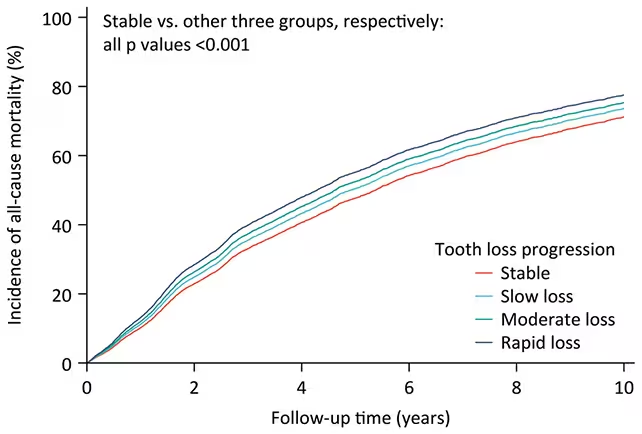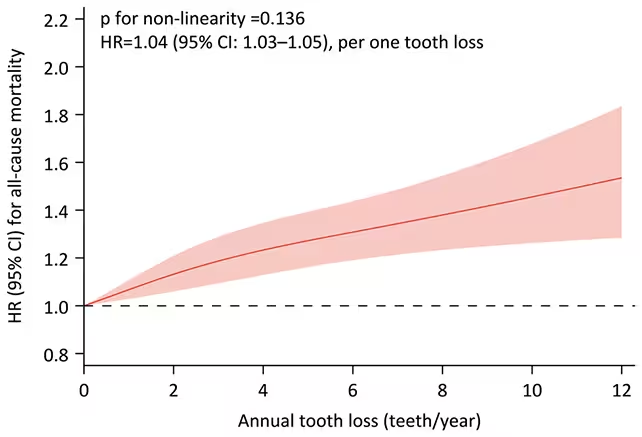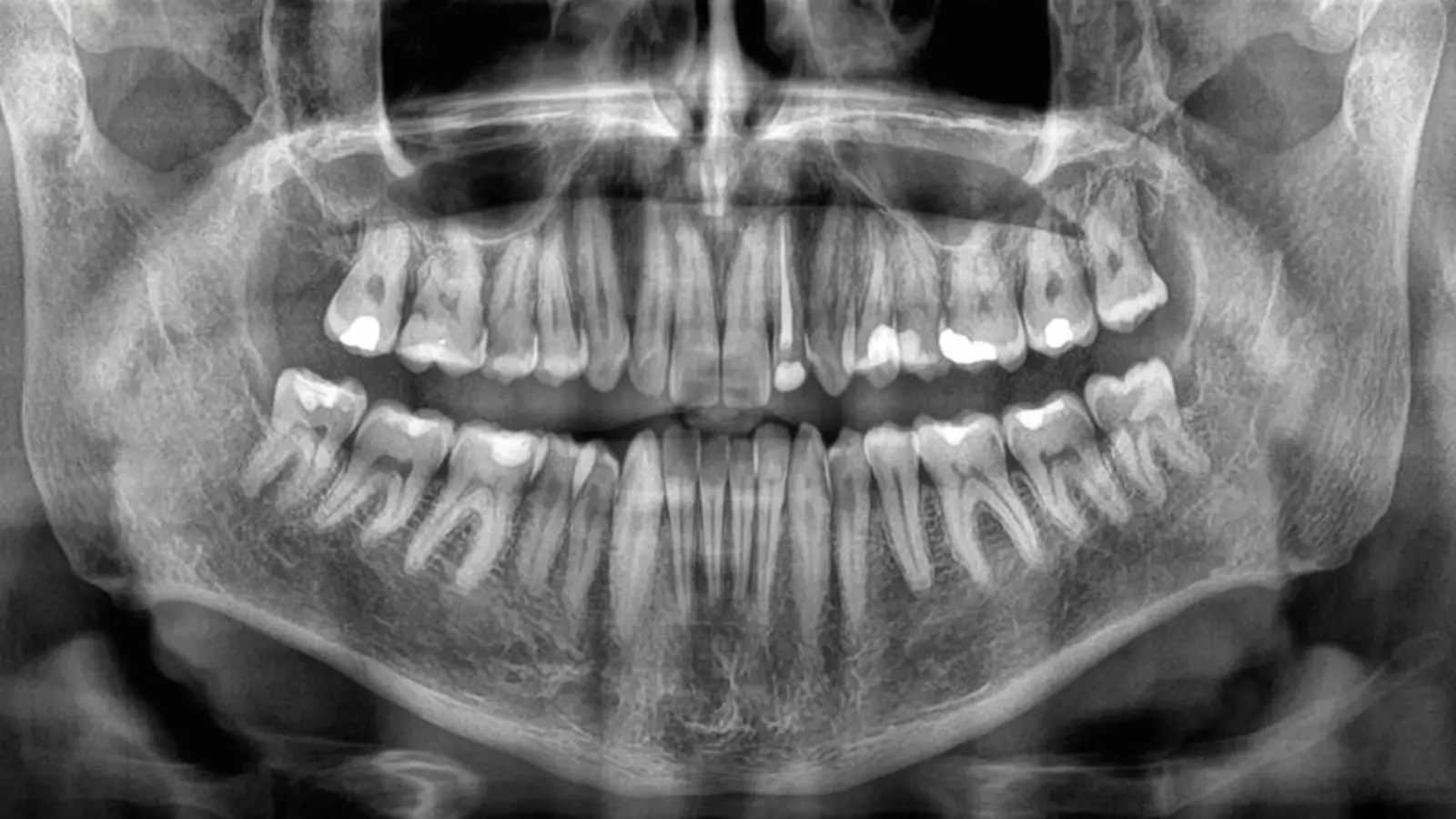5 Minutes
New research links the speed at which older adults lose teeth to a higher risk of death, suggesting that rapid dental decline may be a visible sign of broader health problems. The study tracked thousands of seniors over several years and found that tooth loss velocity — not just the number of missing teeth — matters for predicting long-term outcomes.
What the study looked at and why it matters
A team led by researchers at Sichuan University analyzed dental records and health outcomes for 8,073 people aged mostly in later life, following them for an average of 3.5 years. Instead of simply counting teeth at a single point in time, the study measured how quickly participants lost teeth and compared that rate with their risk of dying from any cause.
The headline finding: seniors who lost teeth more rapidly faced a significantly higher risk of all-cause mortality, even when the researchers controlled for baseline tooth count. The association persisted after adjusting for known confounders such as age, sex, education, alcohol use, and exercise habits.
How rapid tooth loss may reflect deeper health problems
It’s important to be clear: the researchers are not saying that losing teeth directly causes death. Instead, tooth loss is likely a marker for underlying processes that shorten life expectancy. Inflammation from chronic oral disease, poor nutrition because of difficulty chewing, obesity-related metabolic issues, and psychological stress are all plausible shared drivers.
For example, when people lose the ability to chew comfortably, they often shift toward softer, less nutrient-dense foods. Over time this can lead to deficiencies in vitamins and minerals that help maintain immune function and cardiovascular health. Chronic oral infections can also sustain systemic inflammation — a known contributor to heart disease and other age-related illnesses.

Faster tooth loss was linked to higher mortality rates. (Duan et al., BMC Geriatr., 2025)
Study design, adjustments and limits
Large cohort size (8,073 participants) and repeated dental assessments are strengths of the work, giving the researchers statistical power to test the link between tooth loss velocity and death. Still, observational research cannot prove cause-and-effect. Residual confounding — unmeasured variables such as access to dental care, socioeconomic shifts, or undiagnosed conditions — could influence both tooth loss and survival.
The team explicitly notes that mechanisms remain uncertain and calls for further research to untangle how oral disease interacts with nutrition, inflammation, and mental health across the life course.
Practical implications for clinicians and families
One actionable takeaway: tracking tooth loss over time could become a low-cost screening tool to flag older adults who may need a deeper medical assessment. Regular dental check-ups, twice-daily brushing, smoking cessation, and prompt treatment of oral infections remain the best-established ways to slow dental decline.
Restorative options — from well-fitted dentures to dental implants — can also help maintain nutritional intake and quality of life. The study suggests that simple dental measures might serve as a red flag for clinicians evaluating an elder’s broader health trajectory.

With each additional tooth that was lost, death became more likely. (Duan et al., BMC Geriatr., 2025)
Where dental science is heading
Beyond prevention, research into tooth replacement and regeneration is advancing. Laboratory-grown enamel, engineered tooth structures and experimental drugs that stimulate tooth regrowth are in development. While these technologies are not yet standard care, they point to a future where preventing the downstream health impacts of tooth loss may become more feasible.
Expert Insight
Dr. Eleanor Hughes, a geriatric dentist and public health researcher, says: "Oral health is an accessible window into overall health. Rapid tooth loss should prompt clinicians to screen for nutritional deficits, inflammatory conditions and mental health needs. A dental exam can reveal risks that might otherwise go unnoticed until a more serious event occurs."
Awareness is the immediate step: both clinicians and caregivers should treat accelerated tooth loss as more than a cosmetic issue. It’s a potential warning sign that merits medical attention and coordinated care.
Source: sciencealert
Comments
Marius
Quick note: worked at a care home, folks who lost teeth fast did decline more, often ate mushy junk. Dentures helped a lot, but root causes matter.
bioNix
Hmm, is tooth loss speed really that telling? Could be access to care, meds, nutrition etc. idk but seems worth watching as a red flag.


Leave a Comment